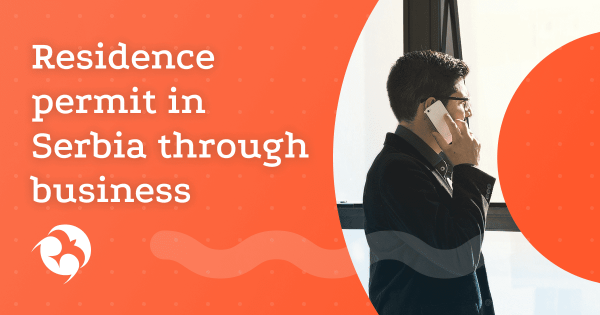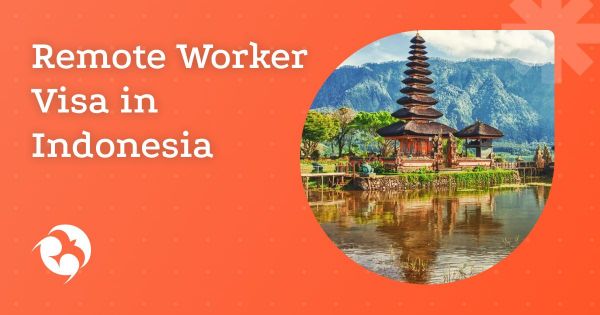Andorra is a mini-state located in the western part of Europe (between Spain and France). It is home to about 85,000 people. The country has no standing army, its infrastructure does not include airports, and it can only be accessed by land.
However, Andorra is a highly developed European country where every foreign visitor can feel completely safe (it boasts a zero crime rate). That is why remote workers consider moving to the territory of a tiny principality, consisting of only 7 cities.
It should be noted that Andorra does not have an official nomad visa. However, for employees working remotely, the government offers the possibility of obtaining a residence permit under special conditions.
Initially, to enter the country, they will need to apply for a Schengen visa, which must be multiple-entry. The entry permit will be valid for no more than 90 days within a six-month period. The application processing time ranges from 14 to 45 days.
Specifics of Andorra’s Freelance Visa
In 2022, the Principality’s government passed the “Law on Digital Economy, Entrepreneurship, and Innovation,” which regulates the procedure for issuing residence permits for self-employed remote workers. However, no more than 50 applicants per year can qualify for temporary resident status.
Only candidates who meet the following criteria are considered:
- Work using technological and telecommunication equipment (computers, communication channels, routers, and so on).
- Collaborate with companies registered outside of Andorra.
- Can provide services from anywhere in the world (without being tied to a specific geographical location).

- We will answer all your questions
- We will help you choose the best option
- We will guide you through every step or do everything for you
The set of requirements for remote workers wishing to live and work in the Principality includes the following:
- ownership or rental of property in the country;
- proof of income – no less than 4,128 € (an amount equivalent to at least three times the minimum wage);
- an official document recognizing the status of remote worker (issued by the Ministry of Economy);
- proof of no criminal record;
- valid health insurance;
- no criminal convictions.
A mandatory requirement for applicants is to reside in Andorra for at least 3 months per year. A clear advantage is the possibility for remote workers to relocate to a European country with their families.
However, one downside of the digital nomad program is that it does not provide a pathway to permanent residency or Andorran citizenship.
What Taxes Does a Freelancer Pay
Freelancers with temporary resident status in Andorra are required to pay income tax. The tax is applied progressively: income up to 24,000 € per year is tax-free, income between 24,001 € and 40,000 € is taxed at 5%, and income above 40,000 € is taxed at 10%.
Tax table for digital nomads, freelancers, self-employed and sole proprietors
| Tax name | The amount of tax | Note |
| Income tax (residents) | 0-10% (progressive scale) | Applies to global income. The first 24,000€ for single individuals and 40,000€ for married couples are not taxed. Income 24,001–40,000€ – 5%, over 40,000€ – 10% |
| Income tax (non-residents) | 10% | Is charged only on income earned in Andorra (rent, services for local companies) |
| Corporate tax (sole proprietors/companies) | 10% (standard), 2-3% (preferential) | For sole proprietors registered as a legal entity. Benefits for holdings and IT companies that meet the criteria of economic substance |
| VAT | 4.5% (standard), 1% (preferential) | Required for annual turnover over 40,000 €. For exports and international services – 0% |
| Tax on dividends | 0% | Dividends from Andorran companies are not taxed |
| Social contributions | Not provided | Only medical insurance is required for digital nomads |
How Much Does the Visa Cost
The consular fee for obtaining a Schengen visa to Andorra is €80. Additionally, there may be visa center fees (if the applicant uses a visa service) and document legalization costs.
Required Documents
To apply for residency in Andorra, a remote worker must provide:
- an application form;
- a valid passport;
- a permit for remote work;
- 1 photo (3.5 x 4.5 cm);
- a certificate of no criminal record;
- a contract with an employer (the company must be registered outside of Andorra);
- a rental or purchase agreement for housing;
- a bank statement;
- health insurance;
- a written commitment to reside in the country for at least 90 days per year;
- a receipt for the state fee payment.
Recent Changes in Andorra’s Visa Policy
Andorra is one of the few countries whose borders are always open to almost all foreigners. However, for citizens of some countries, there are specific conditions. To enter Andorra in 2024, a multiple-entry Schengen visa is required.
According to Google Trends, an increase in searches for digital nomad visas in Andorra was recorded only in February of this year.
Frequently Asked Questions
The primary residence permit for remote workers is valid for 2 years. To extend it, you must confirm compliance with the terms of the program, including the minimum stay (90 days per year).
The procedure consists of 7 key steps:
- Entry on a Schengen visa (the cost of registration is 80-120€);
- Rental of housing (deposit + first month – from 1,200€);
- Collection of documents (translations, apostille – 200-400€);
- Application form (191€);
- Medical examination (50-80€);
- Receiving an ID card (€27.5 per production);
- Registration in the commune (free of charge, but requires confirmation of the address).
Yes, a certificate of no criminal record is required. It must be no older than 3 months.
To confirm the working status of a freelancer or remote worker, you must provide:
- A contract with a foreign employer or documents confirming freelancing;
- Remote work permit from the Ministry of Economy of Andorra;
- Evidence that the work is performed using technological and telecommunication equipment;
- Confirmation that all clients or employers are located outside Andorra.
The applicant must meet the criteria established by the Law on Digital Economy, Entrepreneurship and Innovation, which defines the status of a remote employee.
It is necessary to show a monthly income of at least 3,858€ (300% of the minimum wage). For a family of 3 people, the amount increases to 5,000-5,500 €/month.
Yes, to obtain a residence permit, you must provide proof of availability of housing in Andorra. This may be a rental agreement, documents confirming ownership of real estate, an invitation letter from the person with whom the applicant will reside, with appropriate supporting documents. Having a place of residence is one of the key requirements. To maintain the status of a resident, it is necessary to reside in Andorra for at least 90 days a year.
Medical insurance is a mandatory document. The insurance must cover the entire period of residence in the country and include basic medical services (including emergency medical care).
The average cost varies from 40 to 120 €/month, depending on the age of the applicant and the services included. For a family of 3 people, the annual expenses will amount to 1,500-2,500€.
A residence permit in Andorra for remote workers allows you to attach family members to the main applicant. This will require documents confirming family ties (marriage certificates, birth certificates), passports of all family members, and medical insurance for each family member.
Adding dependents increases the total processing time by 7-10 business days.
All documents issued in foreign languages will require an official translation into Catalan (the official language of Andorra) or Spanish/French.
Preparation of documents requires at least 2-4 weeks.
After submitting the full package to the Migration Service of Andorra, the review period is 10-15 business days. During peak periods, the time limit increases to 20 days.
A medical examination is carried out on the next business day after the application is submitted. The results are available in 72 hours. Then you must personally report to the migration service for final approval.
The renewal procedure begins 60 days before the expiration of the current permit. The review takes 15-20 business days. The applicant must provide updated income and residence documents.
It takes 14-45 days to apply for a multiple-entry Schengen visa through the Embassy of Spain or France.
After receiving the preliminary approval of the residence permit, you must register with the local municipality within 30 days. Missing this deadline will result in the cancellation of the immigration file.
The procedure includes:
- Apostillation in the Ministry of Justice of the Russian Federation (5 working days).
- Notarized translation into Catalan (3 working days per document).
- Consular legation (up to 14 days through the Embassy of Andorra in Paris or Madrid).
The main state fee is to pay for the examination of the application in the amount of 191 €. This amount is paid when submitting documents to the Migration Service of Andorra.
Total expenses include:
- Legalization of a criminal record certificate (apostille – 30-50 €).
- Notarized translation into Catalan (25-40 €/document).
- Consular services (if necessary – 100-200 €).
Total: 300-700€, depending on the volume of documents.
The minimum rental period is 1 year. Studio in Andorra la Vella: 800-1,200 €/month. 2-room apartment: 1,200-1,800 €/month. Deposit: 1-2 months of rent.
If extended after 2 years, a state fee of 150 € is paid. Additional costs include insurance renewal (+10-15% of the initial cost), repeated filing of income documents (100-200 € for legalization).
- Legal support (1,500-3,000€ per full cycle).
- Emergency document transfers (50-100 €/document).
- Repeated medical examinations in case of delays (50-80 €/visit).
- Catalan language courses for integration (200-400 €/level).
It is not possible to obtain an Andorran passport through a freelance visa. The temporary residency program for remote workers does not provide for the transition to permanent resident status or citizenship.












